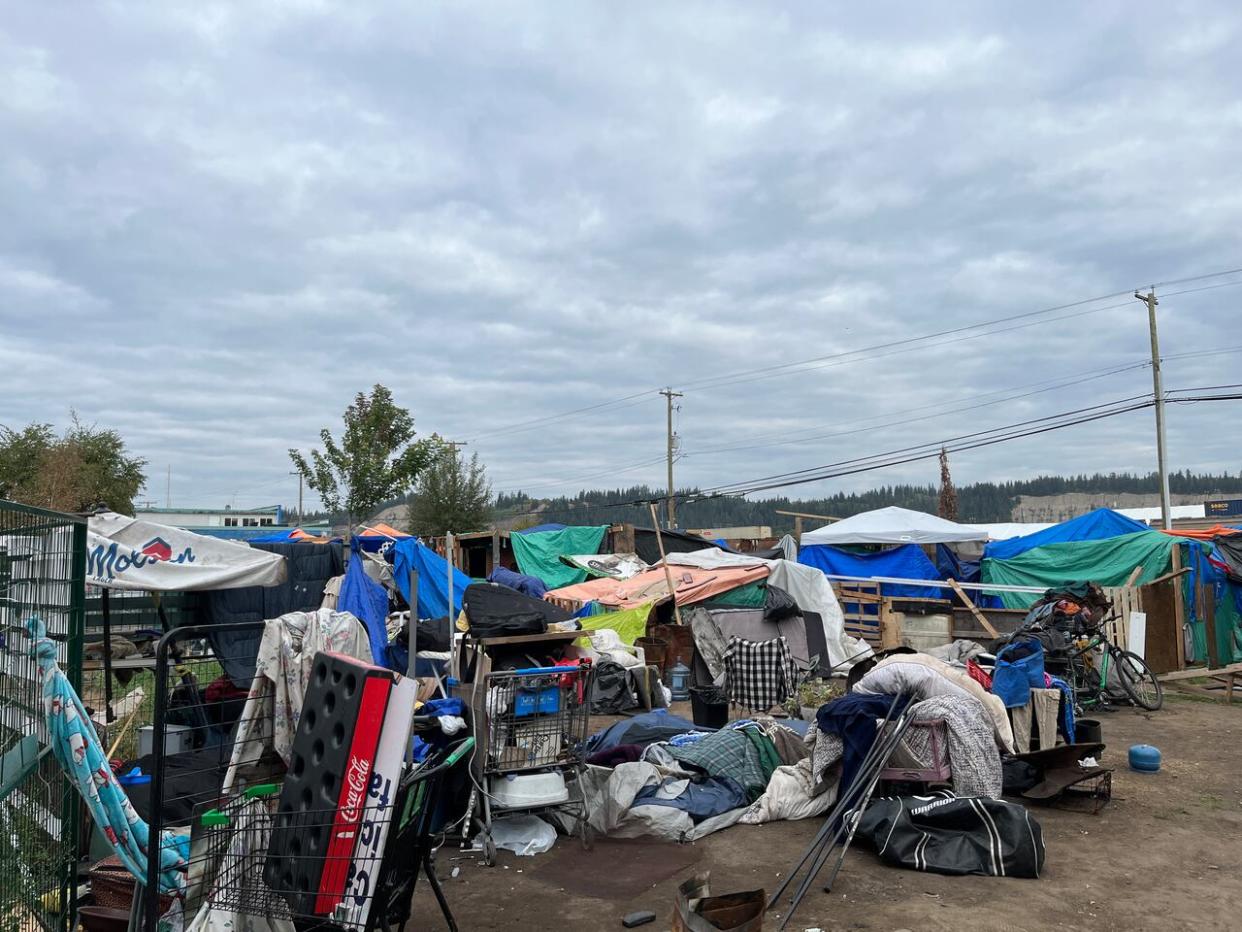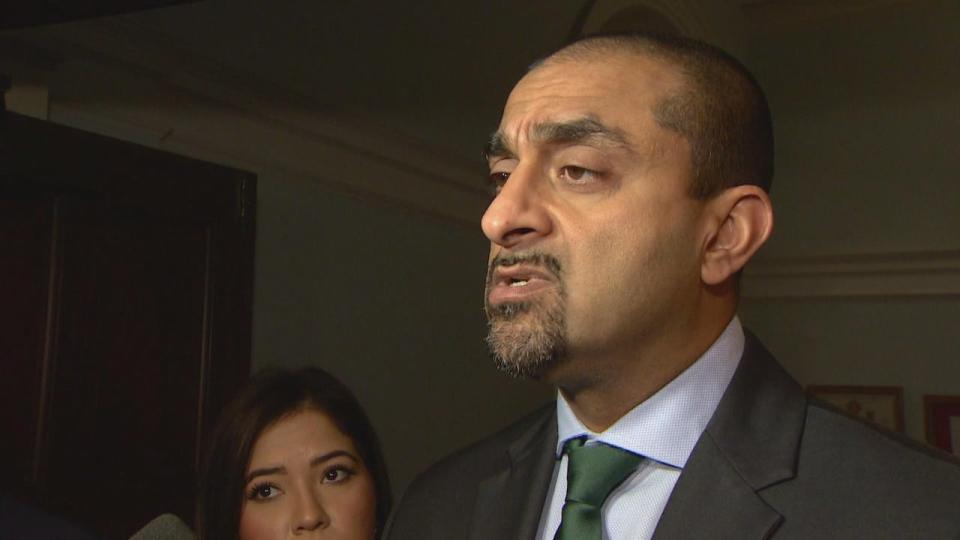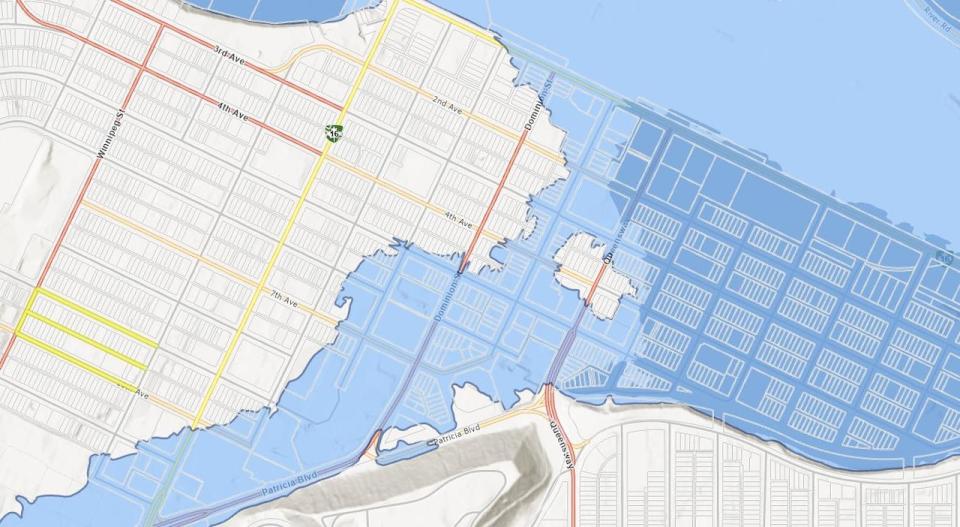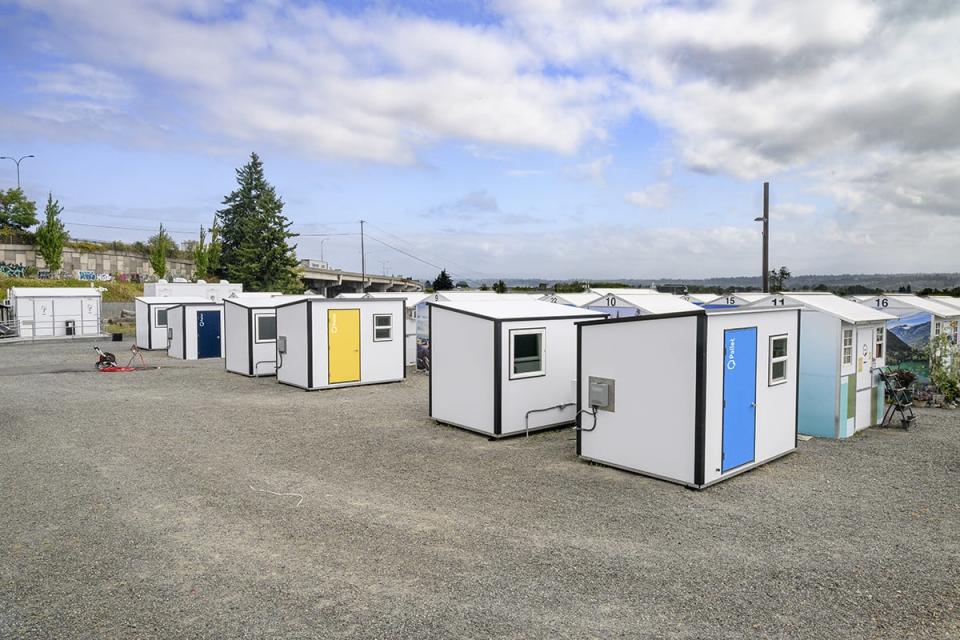Cracks showing in relationship between northern B.C. municipality, province over homelessness inaction

Six months after the City of Prince George signed on to a new agreement with the provincial government intended to address homelessness, the two sides are sparring over stalled plans in northern B.C.'s largest municipality.
In a release marking the half-year anniversary of the signing of a Memorandum of Understanding (MOU) aimed at finding solutions to homelessness, the city claims the province has yet to fulfil their commitments.
But Housing Minister Ravi Kahlon is pushing back. In an interview with CBC's Carolina de Ryk on Daybreak North, Kahlon said it is, in fact, the city that is creating barriers to addressing homelessness.
Homelessness has been a persistent source of tension for Prince George City Hall. In 2021, the city lost a court case resulting in an encampment known as Moccasin Flats winning court-protected status.

B.C. Housing Minister Ravi Kahlon, pictured at the Legislature in November 2023, has publicly criticized the City of Prince George for demolishing a downtown encampment without providing housing alternatives to displaced residents. (CBC News)
Prince George also has one of the highest rates of homelessness per capita in B.C.
The tensions were first made public in September when Kahlon criticized the city for demolishing another downtown encampment at Millennium Park without providing safe alternatives to displaced encampment residents.
"It's vitally important that you have some sort of shelters available for individuals before you take those steps," he told de Ryk.
Meanwhile, community members have been building tiny homes for encampment residents to fill the gaps.
"I don't know the ins and outs of the politics or the bureaucracy … but what I do know is the end result. And the end result is that nothing is being done, or nothing is being done quickly enough," volunteer builder Brad Gustafson told CBC News.
Gustafson is part of a team of volunteers that have built or secured by donation more than a dozen tiny homes for Moccasin Flats this year alone.
Provincial commitments
The MOU signed in June 2023 outlines a partnership between the two levels of government to respond to the needs of encampment residents.
Only one other municipality, Kelowna, has signed on to the program, called the Homeless Encampment Action Response Temporary Housing (HEARTH), as of January 2024.
In the written release, the City of Prince George lists a number of commitments from the province to this end, including installing "a transitional shelter facility."

The province says they oppose the location suggested by the City of Prince George for the transitional shelter facility because it sits on a flood plain. Most of Prince George's downtown area sits on a flood plain, indicated in blue overlay on this map. (Submitted by the City of Prince George)
But Kahlon says city staff provided just one location for that facility, a vacant lot near the court-protected Moccasin Flats encampment that sits on a floodplain.
A written statement from B.C. Housing, the provincial agency responsible for administering subsidized housing, says they "made it clear" that it would be up to the city to do the "considerable preparatory work" to make the site suitable for the shelters.
In a written response to CBC News, the city expressed confusion as to why this was a concern for a temporary facility amidst a record-setting drought.
The majority of the downtown area, including multiple supportive housing facilities owned by the province, sits on a floodplain.
Kelowna gets gold star from province
In November, the City of Kelowna and B.C. Housing announced plans to convert a vacant lot into a site for 60 tiny home shelters, with access to a communal bathroom and kitchen facilities.
In an interview on Daybreak North, Kahlon said collaboration from Kelowna City Hall is what made that possible, and that Prince George has not stepped up in the same way.
"The difference is Kelowna came forward with sites and a commitment to actually get housing … they had tough conversations with their community and acted quickly," he told de Ryk.
By comparison, Kahlon said, Prince George offered just one location and, when the province purchased a hotel to convert into housing, he says city staff wanted to send it out for what he described as a "large public hearing which would possibly mean huge delays in getting more housing brought online."

Sixty tiny homes for unhoused people are shown, built in partnership between the Province and the City of Kelowna. (Submitted by BC Housing)
"Moving people from encampments can be done overnight," he said in reference to the controversial move by the city to demolish an encampment in September 2023, "but getting housing for people can take six months, a year, because the truth is … everyone knows we're in a housing crisis, but nobody wants the housing near their homes."
"We have to get past that in order to address the challenge."

